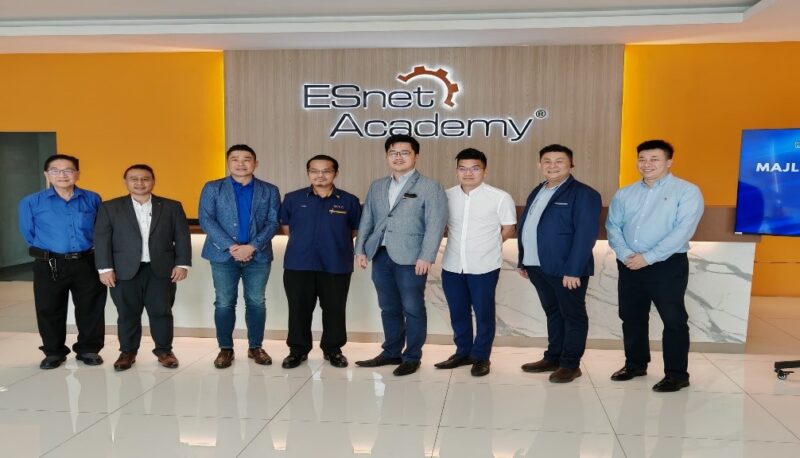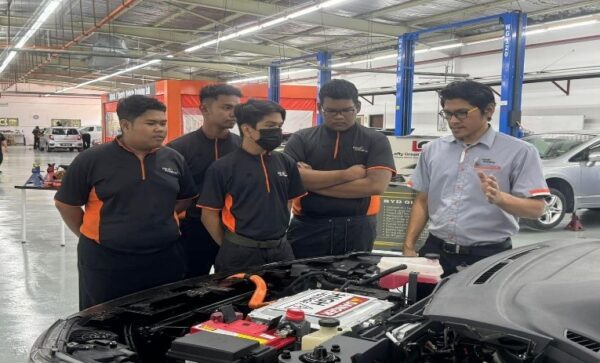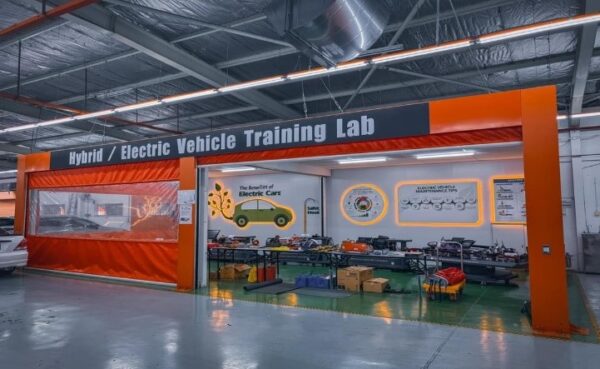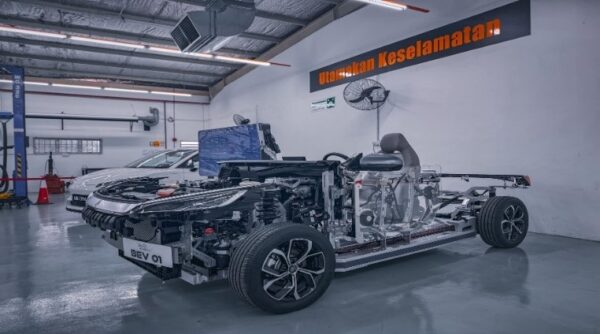
This site
is mobile
responsive

As Malaysia embarks on a transformative journey towards a sustainable future, the electric vehicle (EV) revolution emerges as a critical catalyst for change. This shift not only reflects a global commitment to reducing carbon emissions and combating climate change, but also underscores the urgent need for a skilled workforce capable of supporting this burgeoning industry.
In today’s unpredictable economic era, the demand for innovative, hands-on training has never been higher. It is here that Technical and Vocational Education and Training (TVET) institutions are poised to equip the next generation of talent with the skills necessary to thrive in the green economy. Supported by robust government initiatives and policies, these institutions play a vital role in shaping a workforce aligned with Malaysia’s vision for a sustainable future, positioning themselves as key market players in electric mobility.
Globally, the demand for TVET is on the rise, driven by rapid technological advancements and the shifting sands of the labour market. According to the International Labour Organisation (ILO), an estimated 600 million new jobs will be required globally by 2030 to keep up with the growing working-age population.1 This emphasises the critical role of TVET in preparing a skilled workforce. Sectors like renewable energy, technology, and healthcare are witnessing increased demand for skilled labour, with TVET programmes recognised as essential for bridging the skills gap.
In Malaysia, the demand for skilled labour in the TVET market is escalating, particularly in the context of transition to electric vehicles (EV). YB Tengku Datuk Seri Utama Zafrul Tengku Abdul Aziz, the Minister of Investment, Trade and Industry (MITI), has highlighted that the shortage of skilled EV workers must be addressed if Malaysia aims to remain competitive in the rapidly expanding regional EV market.2 This gap presents a unique opportunity for TVET institutions to tailor their curriculum to meet industry needs, thereby enhancing employability and addressing workforce shortages.
The ASEAN EV market is projected to reach USD2.7 billion by 2027, with Malaysia experiencing rapid growth in EV sales as consumers preferences shift towards sustainable transportation options. The Malaysian Automotive Association (MAA) reported a remarkable 286 percent increase in EV sales in 2023, with a total of 10,159 units delivered compared to 2,631 in 2022.3 This surge is driven by heightened consumer interest and effective government initiatives to promote EV adoption.
Industry experts emphasises the necessity for competencies in several key areas to sustain this growth:
Malaysia aims for EVs to constitute 15% of the total industry volume (TIV) by 2030 and 80% by 2050, as outlined in the Low Carbon Mobility Blueprint (LCMB) and the National Energy Transition Roadmap (NETR). The MAA also forecasts that EVs will contribute 2% of 2024’s TIV, equating to approximately 14,800 units.
In order to achieve this vision, Malaysia needs to invest in its people. Therefore, in June 2024, Prime Minister Datuk Seri Anwar Ibrahim announced that the government would allocate an additional RM200 million to bolster technical and vocational education and training (TVET) programmes, specifically targeting high-value sectors such as electric vehicles, cybersecurity, artificial intelligence, advanced materials and electronics technology.

ESnet Academy is a renowned TVET institution specialising in automotive education and training programmes. Founded in the year 2000, Esnet Academy operates two (2) campuses in Ipoh, Perak catering to approximately 300 active local students. It is the first TVET that offers comprehensive programmes ranging from automotive maintenance and body repair to cutting-edge EV technology, effectively nurturing the next generation of skilled professionals in the automotive industry.
Offering over 15 accredited automotive-related programmes, from Certificate to Advanced Diploma levels, ESnet Academy provides a robust curriculum to equip students with both theoretical knowledge and practical skills ensuring they are well-prepared for the workforce. The institution emphasises hands-on training, allowing students to work on real vehicles and the latest technologies. Additionally, flexible learning is available to accommodate diverse learning styles and schedules.
What sets ESnet Academy apart is its robust collaboration with industry and educational partners. Partnerships with companies like Cycle & Carriage Bintang Berhad, Motordata Consortium Research Malaysia Sdn. Bhd., and WinPower Sdn. Bhd. provide invaluable insights and resources, enhancing students’ readiness to meet industry demands. Furthermore, ESnet Academy’s partnerships with esteemed international institutions, allow it to offer globally recognised programmes such as the Advanced Diploma in Automotive Engineering and the Diploma in Automotive Technology (Body & Paint) from South Essex College (UK).
Additionally, ESnet Academy also offers professional programmes from the Institute of the Motor Industry (UK), including the Level 1 and Level 2 Award in Electric/Hybrid Vehicle Awareness and Hazard Management for Emergency and Recovery Personnel, as well as the Level 3 Award in Electric/Hybrid System Repair and Replacement. These international partnerships enhance student learning and foster technological exchange, providing benefits for both ESnet Academy and its students. By accessing cutting-edge training and resources, students gain vital skills in the evolving automotive landscape, preparing them for careers in electric and hybrid vehicle maintenance and repair. Likewise, this elevates the institution’s offerings and enriches the educational experience for the students.
Furthermore, the institution boasts an esteemed faculty composed of industry experts, comprehensive career support services that is globally recognised. To date, ESnet Academy has produced more than 5,000 alumni who have been employed by various automotive brands, including Toyota, BMW, Proton, Nissan, Mercedes and more. Students graduated from ESnet Academy have secured various positions, working as EV Technicians/Specialists, lecturers, accessories experts, body repairers and spray painters. On the other hand, many graduates also find themselves becoming owners of their own workshops.

Government policies assume a pivotal role in the adoption and development of electric vehicles (EVs) in the country. The Malaysian Government through MIDA, actively promotes incentives and encourages private sector investments in the manufacturing of EV charging equipment and TVET institutions offering technical and vocational training. Companies engaged in this sector that plan to take on new investments or expand their training facilities can benefit from applying tax incentives. These include an investment tax allowance of 100% of the qualifying capital expenditure incurred within a period of 10 years, and the allowance is offset against 70% of statutory income for each assessment year. As at June 2024, a total of 31 projects have been approved for TVET activities with an investment amounting to approximately RM700 million which contributed to 840 local employment.
For more information, please visit https://www.mida.gov.my/ or reach out to the Healthcare, Education and Hospitality Division MIDA at https://www.mida.gov.my/staffdirectory/healthcare-education-hospitality-division.
1 Source: International Labour Organization. (2023). World Employment and Social Outlook 2023: Trends 2023
2 Source: The Star: Zafrul: Address lack of skilled EV workers quickly, 23 November 2023
3 Source: Malaysian Green Technology and Climate Change Corporation. Malaysia on track for EV revolution
